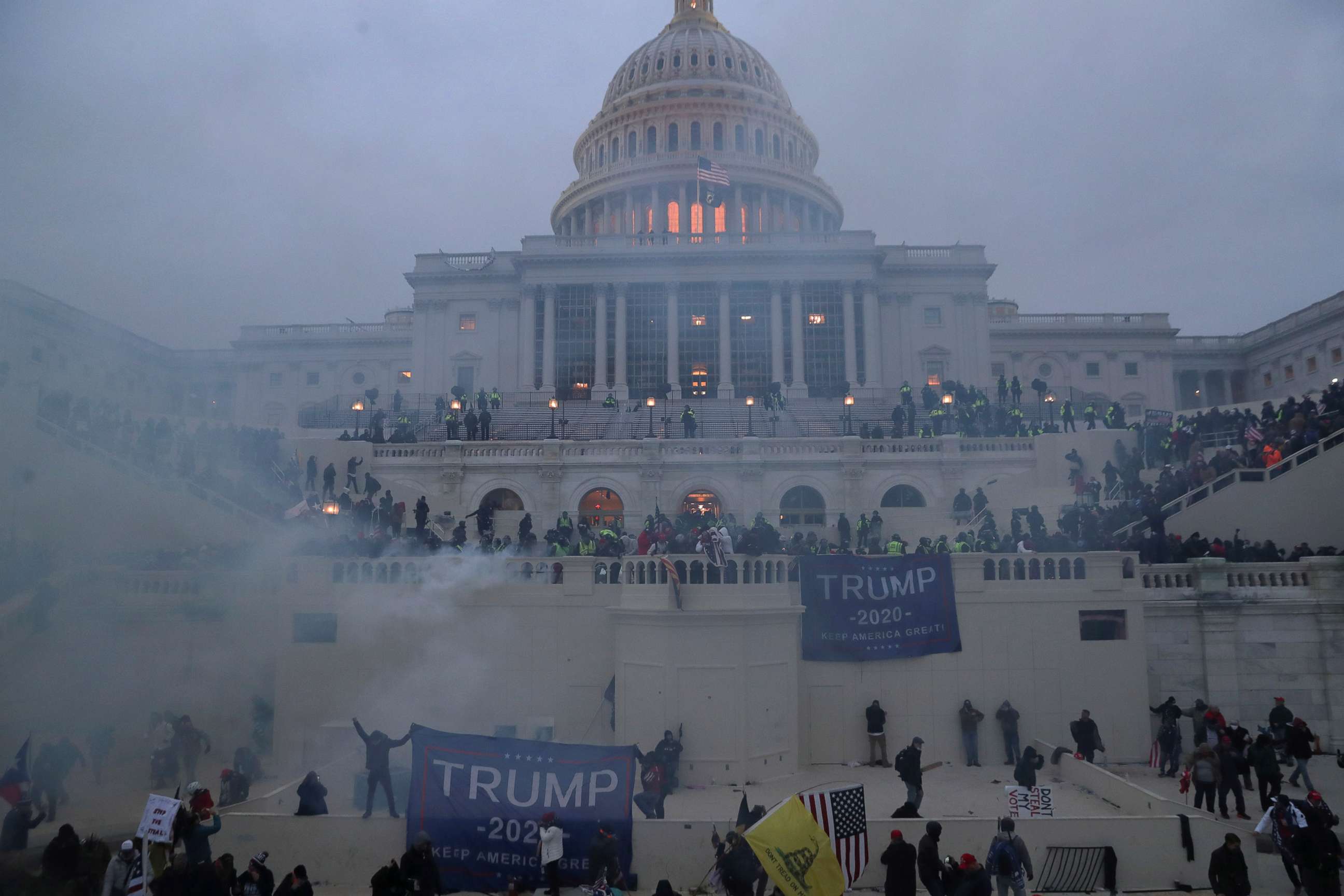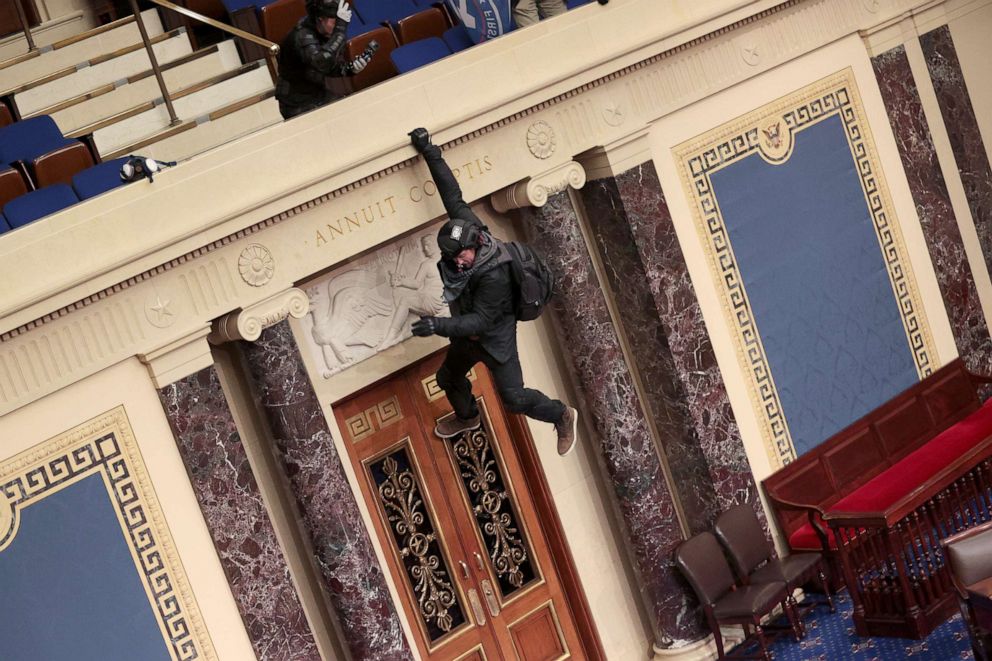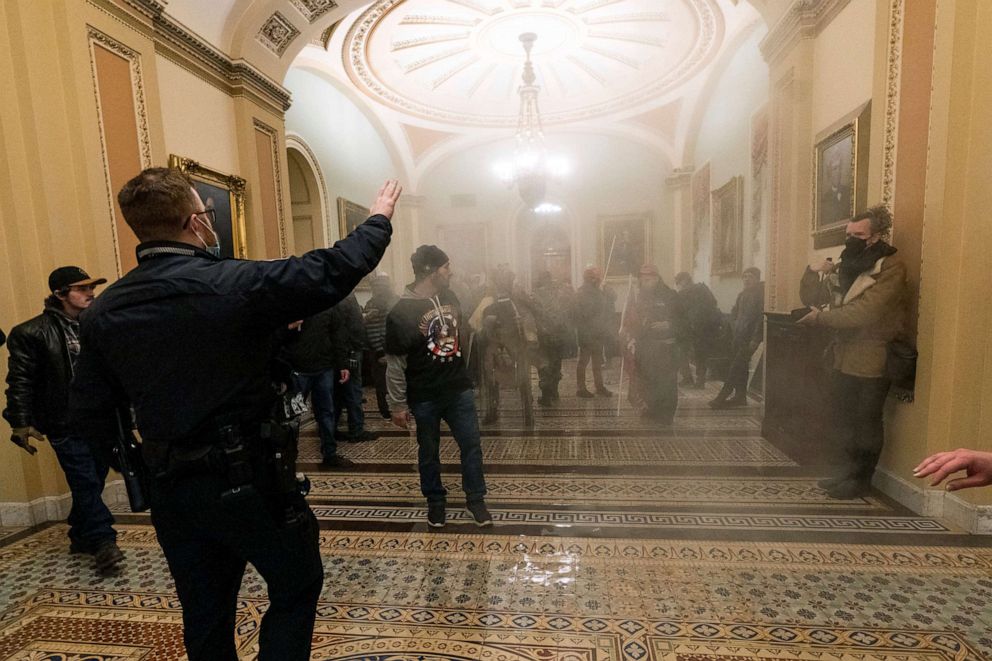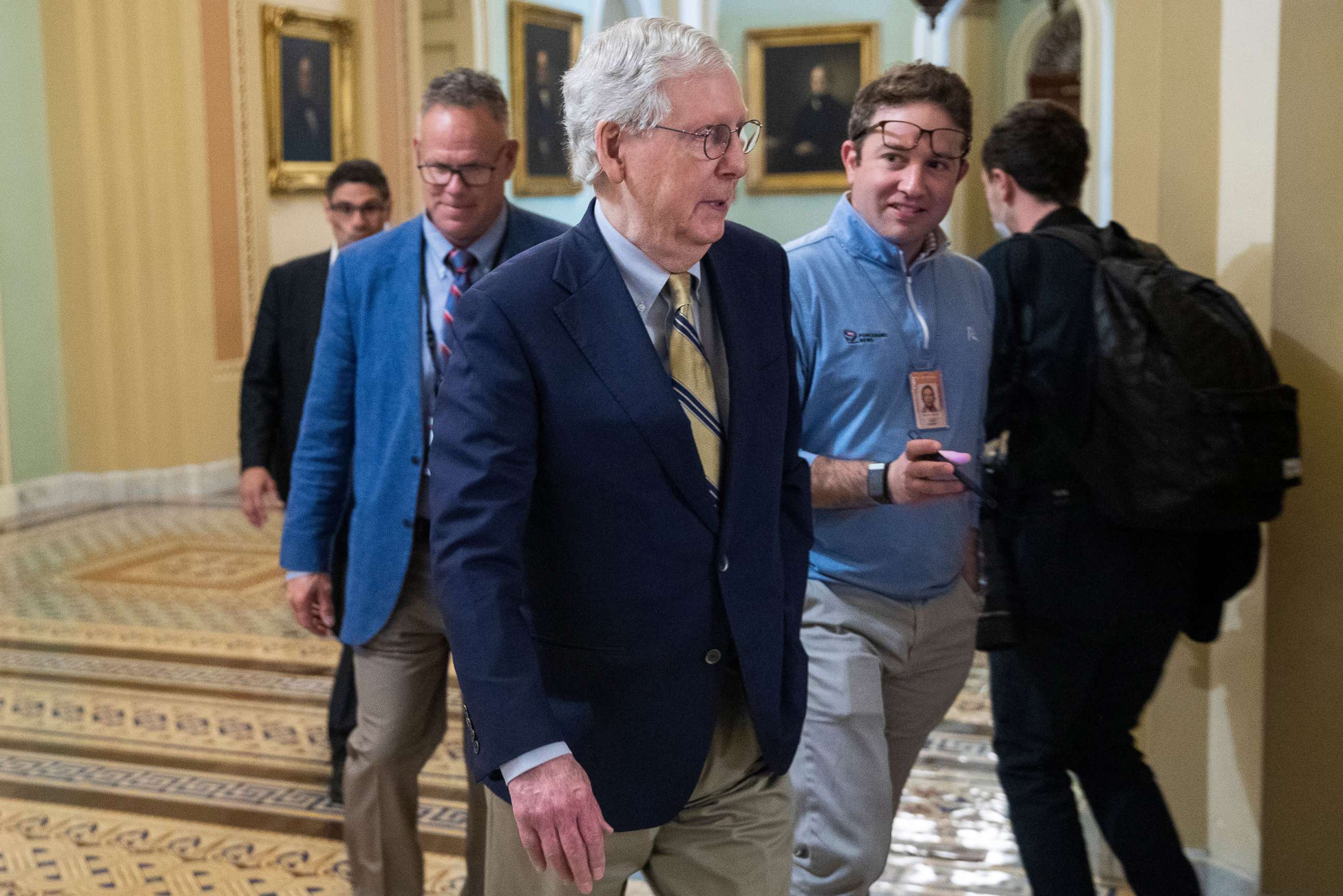Senate Republicans use filibuster to kill Jan. 6 commission
Only six Republicans joined Democrats in a procedural vote.
In a remarkable political moment, Republicans on Friday blocked the Senate from moving forward on a bill that would establish a bipartisan, independent commission to investigate the Jan. 6 assault by Trump supporters on the U.S. Capitol.
Six Republicans joined Democrats in the 54-35 vote, but that fell six votes short of the 60 needed to start debate on establishing a commission -- which then, normally, would require only a simple majority to pass in a final vote.
"Out of fear or fealty to Donald Trump, the Republican minority just prevented the American people from getting the full truth about January 6," Senate Majority Leader Chuck Schumer said right after the vote.
"Senate Republicans chose to defend the 'big lie' because they believe anything that might upset Donald Trump could hurt them politically," he said.
The Senate leader reminded GOP senators they "all lived the horrors of January 6."

"I was no further than 30 feet from those white supremacist hooligans. Do my Republican colleagues remember that day?
"Do my Republican colleagues remember the savage mob calling for the execution of Mike Pence -- the makeshift gallows outside the Capitol? Men with bulletproof vests and zip ties, breaking into the Senate gallery and rifling through your desks. Police officers crushed between doorways?" he said.

"Shame on the Republican Party for trying to sweep the horrors of that day under the rug because they're afraid of Donald Trump," he continued. "Our democracy has long endured because leaders have good faith, even if they disagreed even if political cost shared a fidelity to the truth."
"Not so today," he concluded.
No Republican spoke.

The legislation had seemed doomed despite Gladys Sicknick, the mother of fallen Capitol Police officer Brian Sicknick, going from office to office on Capitol Hill Thursday, pleading with Senate Republicans to support a commission.

Democrats needed 10 Republicans to join them to overcome the GOP filibuster but only Sens. Mitt Romney of Utah, Susan Collins of Maine, Murkowski of Alaska, Ben Sasse of Nebraska, Rob Portman of Ohio and Bill Cassidy of Louisiana voted to advance the legislation.
Overnight, Murkowski slammed Senate Minority Leader Mitch McConnell and other of her party leaders, saying they allowed political considerations to dictate their decision.
"To be making a decision for the short-term political gain at the expense of understanding and acknowledging what was in front of us, on Jan. 6, I think we need ... to look at that critically," Murkowski said. "Is that really what this is about is everything is just one election cycle after another, or are we going to acknowledge that as, as a country that is based on these principles of democracy that we hold so dear?"

Sasse, Cassidy, Romney, Collins, and Murkowski also voted to convict former President Donald Trump for "incitement of insurrection" in the Capitol assault.
While the Senate was tied up for hours on Thursday in a series of procedural knots on an unrelated bill dealing with China's competitiveness ahead of an upcoming procedural vote on the commission, President Joe Biden weighed in.
"I can't imagine anyone voting against the establishing of a commission on the greatest assault since the Civil War on the Capitol," Biden told reporters while stopping for ice cream in Cleveland.
The measure would have established an evenly-split 10-member outside panel to delve into the origins of the riot and what happened on Jan. 6, each side sharing subpoena power with an equal number of staff on each side.

McConnell and his House GOP counterpart, Kevin McCarthy, provided political cover for Republicans in both chambers to reject the legislation by announcing their opposition last week, ahead of the House approving the measure with 35 Republicans joining Democrats to vote yes.
McConnell, McCarthy and most rank-and-file Republicans have said they feared Democrats would try to make political hay out of a commission, dragging out any findings into the crucial 2022 midterm election year, when control of both chambers is at stake.
But Democrats counter that the real reason for Republicans' opposition is that they are beholden to Trump, whose supporters spearheaded the Capitol assault.



